When applying for an IT project manager job, they will first see your resume. It’s therefore, it’s essential to make an excellent first impression with your resume because it might be the only chance you get. Your resume should not just list all the jobs you’ve ever had. Instead, it should focus on the specific skills and experiences relevant to the job you’re applying for. Even if you have had many jobs in different fields, if there are any transferable skills that you use to being a project manager, they need to be listed in your resume. For this article, we will focus on how to write an effective resume if you currently work as an IT Project Manager or another role within Information Technology and want to transition into a more senior role with more responsibilities in project management.
IT Project Manager Resume Example

Download This IT Project Manager Resume as PDF
IT Project Lead Resume Example
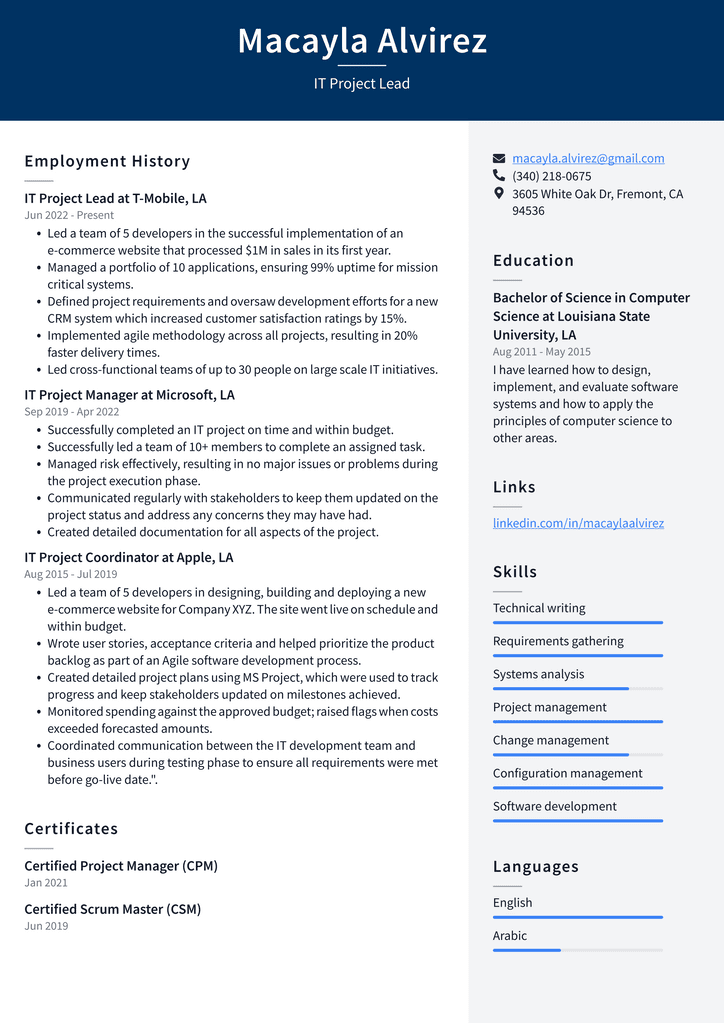
Download This IT Project Lead Resume as PDF
IT Project Director Resume Example
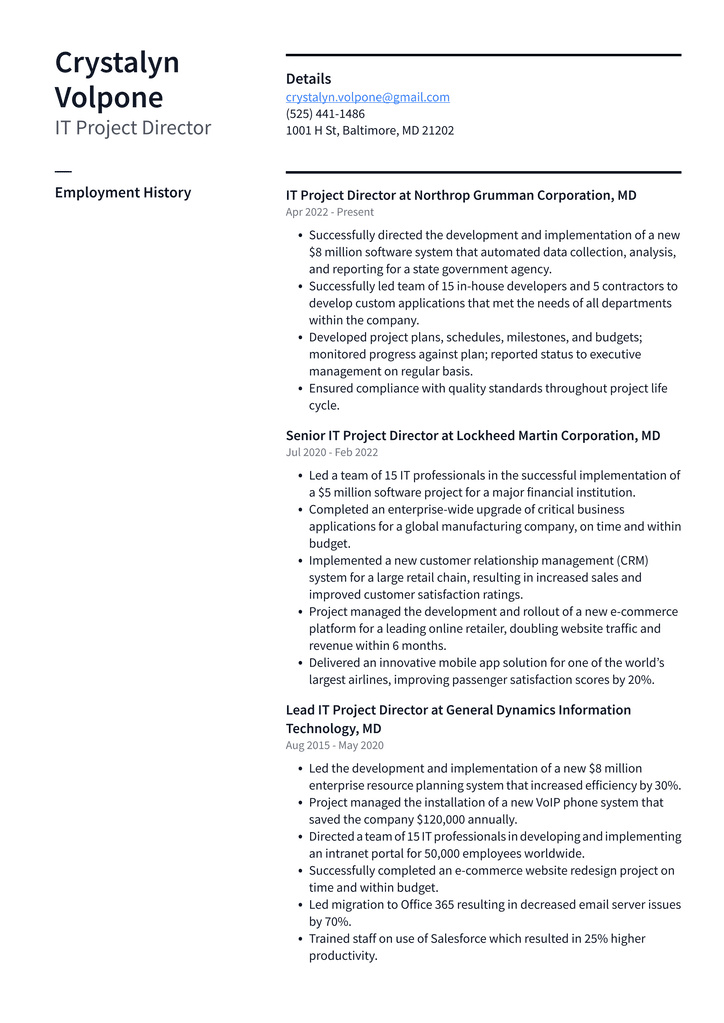
Download This IT Project Director Resume as PDF
Senior IT Project Manager Resume Example
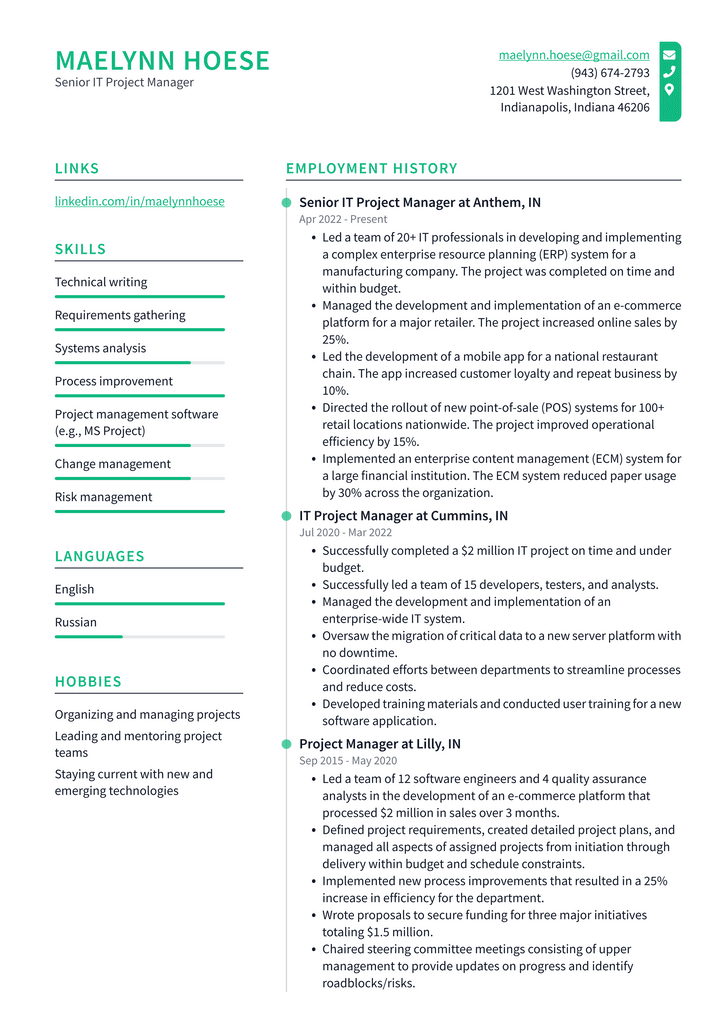
Download This Senior IT Project Manager Resume as PDF
Information Technology Project Manager Resume Example
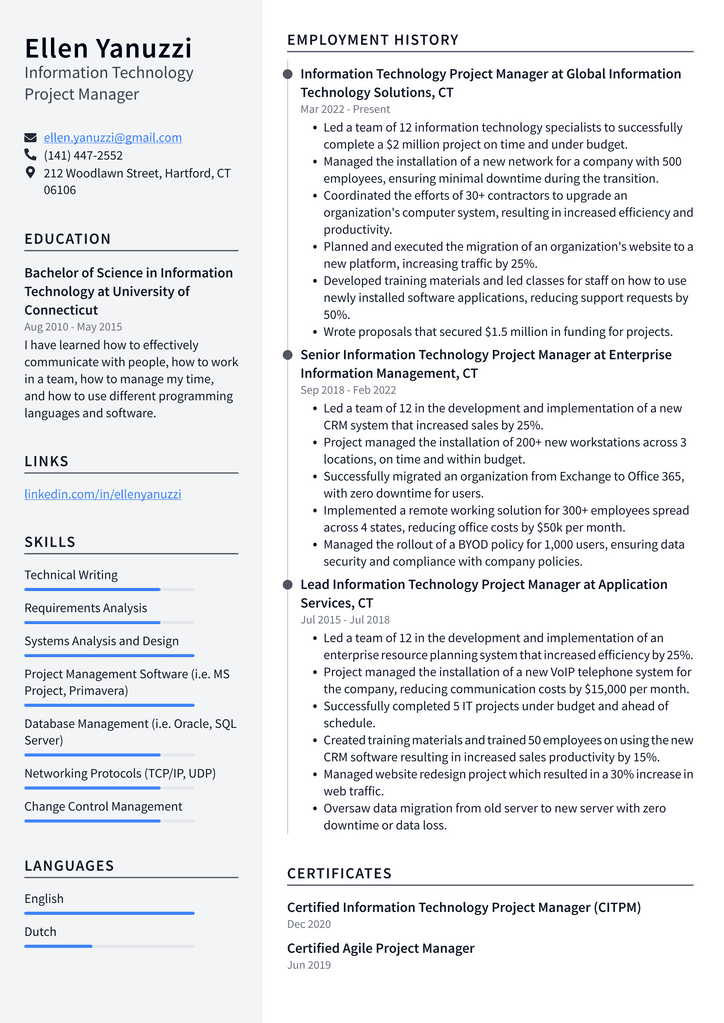
Download This Information Technology Project Manager Resume as PDF
IT Project Analyst Resume Example
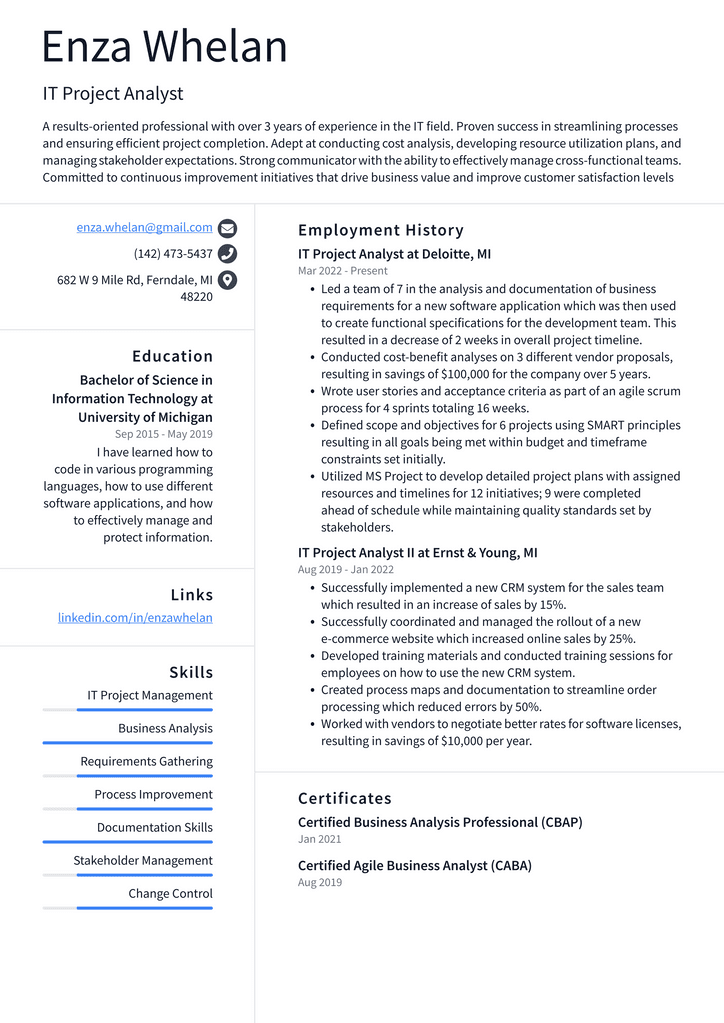
Download This IT Project Analyst Resume as PDF
IT Project Coordinator Resume Example
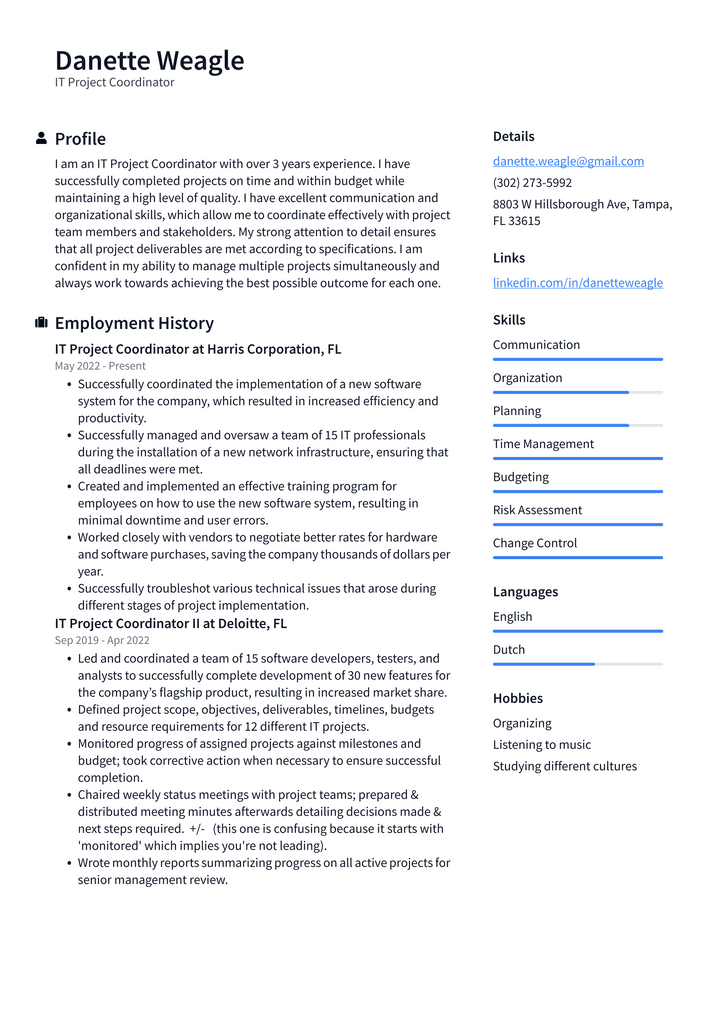
Download This IT Project Coordinator Resume as PDF
Include only relevant information
If you don’t keep your resume relevant, it will be harder for hiring managers to see your relevant experience, strengths, and transferable skills. When deciding which information to include in your resume, ask yourself why the information is relevant. If you can’t find a good reason, don’t include it. If you start with a clean slate and only have the information pertinent to the position you want, it will be easier to put together a focused, high-quality resume in less time.
Summary/Objective statement
An objective statement is a short one-sentence summary of your skills and experience. It’s helpful to put all your most relevant skills and experience in one place. In addition, you can use it to highlight your strengths and showcase why you are a good fit for the job. For example, you might use the following objective statement for an IT project manager job: Project management, software development, and design/build project implementation. Over ten years of experience leading and managing teams. Hands-on experience in software development and technical innovation. You are seeking a position in a growing organization where I can apply my expertise in a hands-on role.
Education
You should include your highest level of education, your graduation date, and any honors or relevant degrees you received. It’s also essential to include the name of the university/institution where you earned your degree. It doesn’t hurt to have what your major was either. Employers may not care about your educational history, but by including it, you will be showing that you are thorough and organized. If you are currently in school and pursuing a degree that you think will be vital to your career, then you can leave your current education section blank. If you are in between degrees or taking a break before pursuing a new degree, you should include your current education.
Professional experience
The following section you should include in your resume is your professional experience. How you organize your experience can vary based on your situation. For example, if you are currently working and applying for a promotion within your company, you might want to manage your experience based on your current title. If you are applying for a job requiring a different set of skills, you might want to organize your experience based on the skills needed for that job. If you are applying for a promotion at your current job, then include your current position, title, and the skills that are relevant to that position. In addition to the information that relates to your current situation, also include the skills required for the work you want.
Skills
The last section of your resume will be skilled. It’s essential to include a list of your skills and abilities because they are the things that will set you apart from other candidates. In your skills section, you should consist of the transferable skills that are relevant to your career goals. To help you write down the skills you want to include, ask yourself which skills you use the most. You can also ask your manager and coworkers what skills you excel at and should consist of on your resume.
Conclusion
Your resume is a snapshot of everything you have done in your career, so it is essential to ensure it is up to date. If you have had job changes, promotions, or gained new skills, include them, so your resume is as updated as possible. Following the tips above, you should have a good idea of what should go into your resume. Now it’s time to put it all together and create a high-quality resume to get you the job you want. That’s all! We hope you enjoyed reading this article and wish you all the best in your future career!